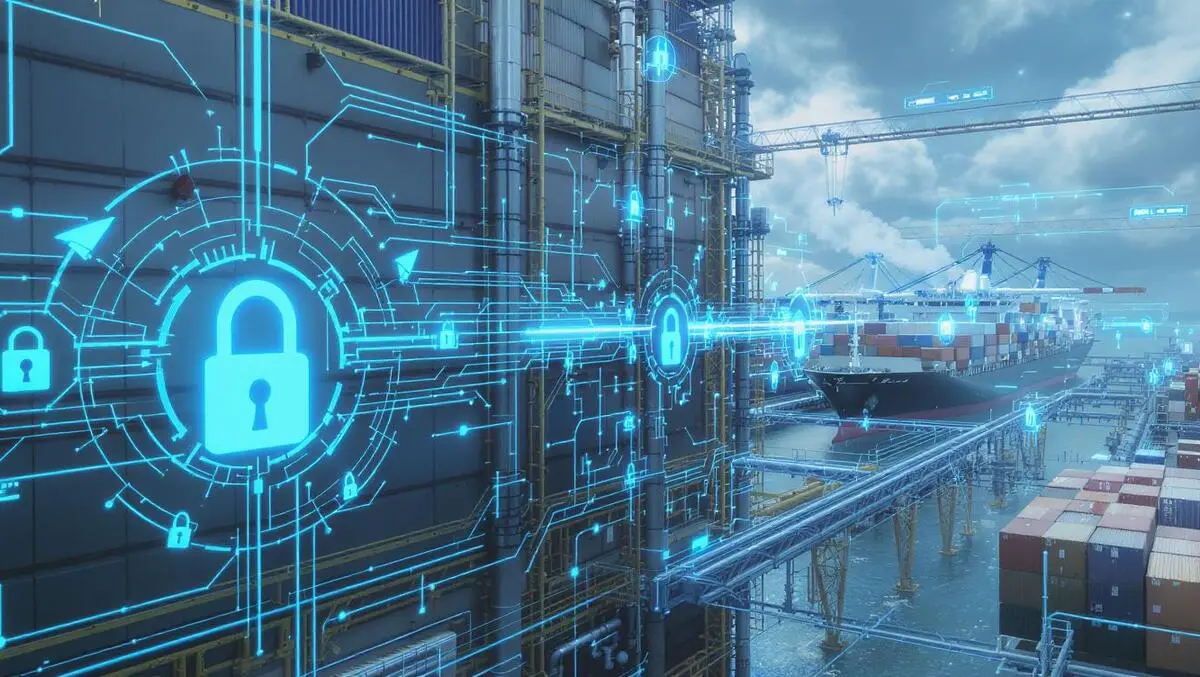
AI transforms security, safety & efficiency in global industries
Artificial Intelligence Appreciation Day marks a moment to reflect on the transformative effect artificial intelligence is having across industries worldwide. Far from being a futuristic novelty, AI is rapidly embedding itself into the bedrock of sectors ranging from cybersecurity and logistics to construction and customer experience, increasingly serving as an essential layer of intelligence, safety, and efficiency.
In cybersecurity, the integration of AI is seen as not merely beneficial but fundamental. Sanjay Katkar, Joint Managing Director of Quick Heal, highlighted the growing importance of AI-driven security solutions in today's volatile digital environment.
"AI Appreciation Day is a timely reminder of the transformational role artificial intelligence plays in securing our connected world. As we navigate an increasingly uncertain digital world, AI-powered cybersecurity has become essential in enabling stronger, more adaptive defenses. The global AI cybersecurity market is projected to reach $93.75 billion by 2030, growing at a remarkable CAGR of 24.4 percent, a reflection of the trust being placed in AI to keep pace with emerging digital threats.
"At Quick Heal Technologies Limited, we recognised the potential of AI a few decades ago and have built our entire innovation strategy around it. As the only cybersecurity company from India to be part of the United States Artificial Intelligence Safety Institute Consortium, we deeply understand its responsible use. For us, AI is not just an enabler, it is a foundational capability we are continuously investing in and refining.
"At the heart of this strategy is GoDeep.AI, our patented malware hunting engine that powers both Quick Heal and Seqrite solutions. Using deep learning and behavioral analytics, it identifies and neutralizes threats in real time enabling a stronger, faster defense against today's evolving threat landscape.
"Our recent innovations build on this momentum as well. Launched last year, AntiFraud.AI, India's first comprehensive fraud prevention solution, reflects our commitment to safeguarding citizens in a rapidly evolving digital financial landscape where fraud is becoming more sophisticated by the day. On the enterprise side, Seqrite Intelligent Assistant (SIA), brings AI to the center of security operations with conversational threat intelligence that simplifies and accelerates decision-making for security teams.
"Through every product and breakthrough, we remain focused on reimagining cybersecurity through the lens of responsible AI making security simpler, sharper, and more effective for every user we serve."
The expansion of AI is also fundamentally reshaping customer engagement. Harsha Solanki, Vice President and General Manager Asia at Infobip, observed the transition from AI as a "support tool" to one that acts as an "autonomous agent driving the future of customer experience." With platforms such as Infobip's Customer Experience Orchestration Platform, brands now have the ability to deliver highly personalised, context-aware, and proactive conversations throughout the entire customer journey. Initiatives like these are helping companies build stronger, trust-based relationships with consumers through seamless, anticipatory engagement.
AI's impact on logistics and supply chain management is dramatic and quantifiable. Dhruvil Sanghvi, CEO and Founder of LogiNext, noted that over 78% of businesses globally are now utilising AI, nearly doubling in two years. The wider AI market is expected to swell to a staggering USD $1.85 trillion by 2030. In logistics specifically, AI-driven technologies are optimising route planning, forecasting demand, and managing autonomous vehicles, all leading to "increased efficiency, lower costs, and enhanced overall reliability." The AI logistics market is forecasted to surge from USD $18.01 billion in 2024 to USD $549 billion by 2033, underscoring AI's vital role in powering smarter, more resilient supply chains.
The accelerating pace of AI's adoption brings with it new security challenges. According to Parag Khurana, Country Manager for Barracuda Networks in India, "The ease of using generative AI to create and enhance content is having a far-reaching impact on people's lives," but it is also facilitating more sophisticated cyber threats. Khurana pointed out that attackers leveraging AI require only one successful breach, while cyber defenders must be vigilant without a single lapse. This dynamic has spurred calls for the development and deployment of advanced, multimodal AI security capable of detecting and neutralising threats regardless of their format or origin.
Beyond the digital realm, AI is also quietly revolutionising safety in high-risk industrial environments. A spokesperson from Speedshield explained that warehouses, factories, and construction sites pose inherent dangers due to unpredictable vehicle and pedestrian movements. AI, through real-time monitoring and intervention, is providing a non-negotiable layer of protection that significantly reduces the risk of accidents and fatalities. Their AiVA system exemplifies how AI can "observe, analyse, and act without delay, distraction, or fatigue" to save lives where manual protocols may fall short.
The construction and infrastructure sectors are also seeing significant AI-driven evolution. Balaji Sreenivasan, CEO of Aurigo Software, illustrated how AI is bridging the gap between long-term planning and execution in construction, enabling the simulation of future demand, the assessment of scenarios, and the prevention of project risk. "If the race to AI is one of progress, then it's also a race to modernise the infrastructure that will support it," Sreenivasan remarked, emphasising AI's pivotal role in shaping not just buildings and roads but the very systems that underpin modern industry.
As AI embeds itself deeper into the operational fabric of business and industry, its role is expanding from a technological enhancement to an indispensable foundation for security, efficiency, safety, and innovation. On AI Appreciation Day, the message across sectors is clear: artificial intelligence is no longer merely a tool of the future - it is a force actively shaping the present and, inevitably, the world to come.


